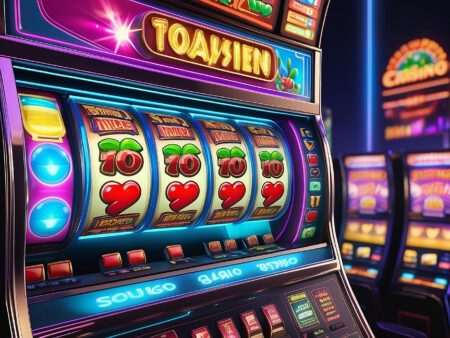Ace your next poker tournament with our proven tips and strategies. Get insights into understanding tournament structures, early stage tactics, and ways to avoid tilting.
Poker Tournament Strategies: Proven Tips for Tournament Success
A Winning Start in Poker Tournament
If you’ve ever taken a seat at a poker table, you’ll know that this game is not only about the cards in your hand, but it also requires strategic planning, a keen mind and an eye for reading your opponents. In the world of online poker tournaments, these skills become even more vital to your success. But how do you train and hone those skills to ensure that you have the upper hand in your next tournament?
By translating the experience and wisdom of poker professionals into actionable strategies, we bring you this guide to winning at poker tournaments. Loaded with proven tactics and insightful tips, this article sets the foundation for understanding and outsmarting your competition in the virtual realm of poker. Let’s onload your journey to becoming a poker champion.
Understanding Poker Tournament Structures
Before diving into strategies, it’s crucial to understand the various structures of poker tournaments. There are several types of tournaments, including ‘Freezeouts,’ ‘Rebuys,’ ‘Shootouts,’ ‘Sit-n-Go,’ with each having unique dynamics and requiring different strategies. Familiarize yourself with these formats and understand how the pace of play, level lengths, and prize distribution can influence your strategic approach.
Early Stage Tactics
The early stages of poker tournaments are a delicate time. Many players adopt an ultra-aggressive approach, while others prefer to sit back and get a feel for the table. Most experts advise playing more conservatively in the early stages to avoid unnecessary risks. Pay close attention to your opponents’ styles and try to exploit their weaknesses. Remember, being patient often pays off in poker tournaments.
Avoiding the Tilt
‘Tilting,’ a phenomenon where frustration or other emotional factors lead to a decline in game performance, is a common pitfall for many poker players. Learning to manage your emotions and maintaining a level head, even under pressure or during losing streaks, can be your strongest weapon in poker. Implement mindfulness strategies like deep breathing exercises, or take short breaks to help keep the tilt at bay.
Maximize The Mid-Game Momentum
As the tournament progresses into the middle stages, it’s time to shift gears. Formerly passive players may become more aggressive as blinds and antes increase. Understanding this dynamic can provide an opportunity for you to capitalize on their desperation. With a strong, discerning eye, you can make targeted plays against these rivals and use their aggression against them.
The Final Table
Reaching the final table of a poker tournament is a thrilling moment – it means you’ve outlasted the majority of your opponents and you’re in the money. However, the game is far from over. Stick to your strategies, adapt to the rapidly changing dynamics and stay cool under pressure. Keep in mind the players’ stack sizes, their seeming strategies, and your table position while making crucial decisions.
Learn to Adapt
In poker, flexibility is equally important to strategy – especially in a tournament setting. Players’ tactics, blinds, your chip stack, your position – these are all variables that change throughout a tournament, and being able to adapt your own strategy accordingly is crucial. Learn from each hand, each mistake, and each victory. This adaptability is the mark of a true poker champion.
More Than Just Poker
The world of online gambling offers more than just high-stakes poker tournaments. You can play a myriad of games on our picturesque portal including blackjack, roulette, and many forms of poker. Check out our comprehensive progressive jackpots guide to learn how you can also win big beyond poker.
Prepare, Practice and Play
Poker is a game that requires study and practice. Read educational materials, watch instructional videos, participate in online poker communities, and most importantly, get hands-on experience by playing.
Parting Words
No single strategy guarantees success in poker tournaments but a combination of careful planning, skillful play, emotional control, and adaptability significantly increases your chances of ending up at the winner’s table. Combine these tournament-tested strategies with a good understanding of poker fundamentals, a passion for the game, and the willingness to continually learn and improve. Good luck on your future poker endeavors. Feel free to discuss these tips in the comments below and share your own poker stories with our community.










